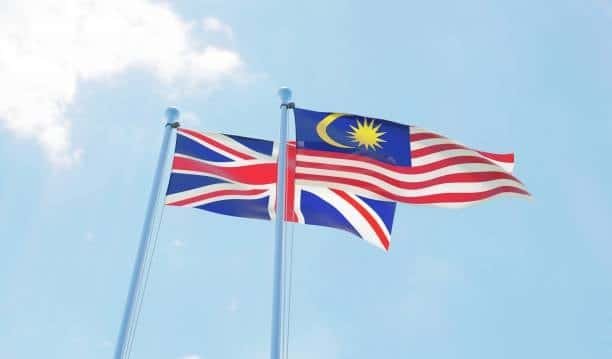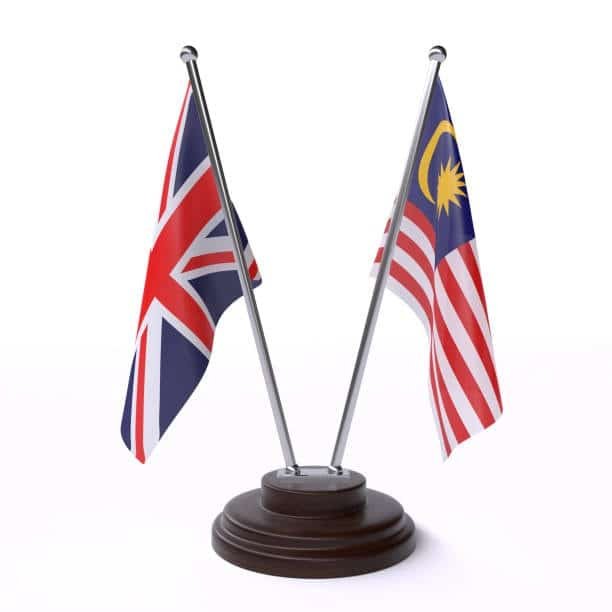Delivery of goods in Malaysia to United Kingdom involves planning, legal familiarity, as well as selection of an appropriate logistics partner. This International shipping guide portrays all that you should be aware of international shipping services between these two countries, under documentation, and onto timelines of delivery.
Understanding Malaysia to UK Shipping Routes

The Malaysian-UK shipping route is about 10 000 kilometers long with various means of transport involved. Direct flights between the Kuala Lumpur International Airport and the London Heathrow, sea cargo involving ports of call at the Port Klang and the UK ports, Felixstowe and Southampton and multimodal transport that involves a combination of the above are the commonest modes affecting shipping rates .
The prominent Malaysian ports such as the Port Klang, the Penang port, and the Johor port are main places of departure of cargo to the UK. These ports provide great accessibility to the UK destinations by fixing up shipping lines and freight forwarders which are specialized in the Malaysia to UK trade route.
Air Freight vs Sea Freight Options

The fastest delivery method to ship freight to the UK is through air freight which on average will be 2-5 business days based on the selected service level. It is perfectly suitable when it comes to time-sensitive cargo, expensive cargo, and shipments of medium to small size. But air freight is very expensive as compared to the sea freight and thus it is only applicable when cargo is urgent or it is of high value.
Sea freight is a cheap option when it comes to bulk deliveries and the delivery takes longer between 20-35 days. It is suitable when shipping bulk goods, non-repressing goods as well as the businesses that intend to save on their shipping costs. The containers offered as shipping options are either Full Container Load (FCL) or Less than Container Load (LCL) services making it flexible with regards to the size of shipments and finance needs.
Documentation Requirements for Malaysia-UK Shipping

Correct documentations are a vital aspect of a successful international shipping. Important customs documents are commercial invoices to describe goods, values, quantity, packing lists of what is inside the package, and what type of packaging, and certificates of origin certifying the place where goods are manufactured. Other certifications may be needed such as export license, import licenses and product specific certification depending upon the kind of goods being exported or imported.
The customs of the UK demand proper declarations to all shipments landing the region. Improperly or poorly documented can lead to delay, sanctions or even rejection of cargo. Employing the services of skilled and competent freight forwarders confirms the accuracy of all documentations in relation to the laws and regulation policies, and also provides an easy movement of the goods through the customs.
Customs Clearance Process and Regulations
Customs clearance process has many steps beginning with the submission of pre-arrival documents. UK customs office examines customs information, charges customs duties and taxes and even decide on inspection of a shipment. The classification of goods into the UK Tariff system identifies the rates at which goods should be charged and restrictions over activities involving importation.
Most imported goods are taxable in Value Added Tax (VAT) and the products have different percentage rates of taxation. The rates of duty charged varies depending on the origin or nature of goods in addition to any trade agreement between Malaysia and the UK. The UK market may impose extra restrictions on some goods or some goods may be subjected to some special requirements like permits.
Prohibited and Restricted Items

There are items, which are either prohibited or limited in shipping goods between Malaysia and the UK. The prohibited goods are such as illicit drugs, fire-arms, false products, and dangerous objects. Limited items can be sent after securing the right authorization and papers such as foodstuffs, electronics and pharmaceuticals.
By knowing these limitations, one will avoid shipment delays and legal problems. Batteries, liquids and delicate items must be packaged with special rules and shipped under special restrictions. Check the latest regulations since they may be modified depending on safety reasons, trade policies and international agreements.
Packaging and Labeling Standards

Good packaging guards against spoilage of products during delivery, and it also complies with world standards in shipping. Choose strong materials that fit the products shipped, cushion the fragile products adequately and package the products in a way that they have to survive the handling of various transportation phases.
The labeling should have highly identified sender and recipient data, correct handling, and hazard labeling according to its labeling. Mislabeling causes delivery to the wrong person, damage, or customs hold-up. Freight forwarders usually give guidance and services such as packaging in order to have all shipments fulfill requirements.
Shipping Costs and Pricing Factors

The prices of shipping a cargo between Malaysia and the UK also depend on such criteria as the weight and dimensions of the shipment, the shipping method selected, the shipping speed and other shipping services needed. The prices of air cargo are between 5 and 15 a kilo, whereas sea transport costs between 800 and 2000 dollars a container depending on the size of the container and the port of sale.
The other expenses are fuel surcharges, security charges, documentation costs and destination handling charges. There are customs duties and taxes which increase the total landed cost that needs to be considered in the budget planning by buyers. Having quote-by-quote of providers will give an idea in selecting which will be the most efficient shipping alternative at the least price.
Delivery Timeframes and Transit Times

The time of delivery highly depends on the preferred shipping method and level. Express air freights are able to get the products delivered within 1-3 business days and standard air freights with a delivery time of 3-7 business days. Ordinary shipments on sea freight usually take 20-35 days; time is necessary to clear with customs as well as deliver the goods.
Some of the factors that influence the transit times are the weather condition, the delay in custom processing, peak shipping seasons and infrastructural limitations. Inclusion of buffer time to shipping schedules facilitates accommodating shipping delays that may occur, and the deliveries are made on time to the end customers.
Insurance and Cargo Protection

Cargo insurance is an insurance against loss, damage to loss in transit or theft. Basic coverage by a carrier on liability may not be adequate enough to cover high value shipments hence, additional insurance is recommended. Comprehensive cargo insurance is one that covers a full value of goods and includes a cover against a consequent of lots of risks.
The cost of insurance premiums is usually 0.1-0.5 per cent of the value of the cargo, which is relatively cheap method of seeking protection against losses. There are variances in the types of insurance which are named perils coverage, all-risk coverage as well as special product insurance on specialized items such as electronics or paintings.
Tracking and Monitoring Shipments
The modern shipping services offer real-time tracking features so that customers of the shipping services are able to know about their packages along the way. The tracking systems provide departing, transit checkpoint, custom clearance status, and other factors that approximate the delivery time. It is this visibility that assists companies to plan on their inventory and inform the customers on the expectations of the delivery cheapest shipping.
Advanced tracking systems can accommodate the use of a Global Positioning System in tracking valuable shipments, temperature monitoring as well as automated notification of a status variation. The features offer reassurance and allow addressing the possible problems in advance.
Common Shipping Challenges and Solutions

Exporting to Malaysia and to the UK has its own challenges such as wrong documentation, delays at custom, and prohibited items shortage of capacity especially during peak seasons. The shipping schedules and the costs can also be affected due to weather-related upheavals, clogged ports, and regulatory shifts ocean freight.
Effective shipping entails dealing with freight forwarders who have tried and tested procedures of handling difficulties common in shipping. Frequent communication, contingent planning and flexible shipping strategies will be used to reduce the effects and provide sure service.
E-commerce and Small Business Shipping
Small companies and online merchants need a certain shipping support when delivering their products to the UK. Small parcels have multiple solutions provided by postal services and delivery companies, whereas bigger packets can be solved with the help of freight forwarders. In consolidation services, the small businesses are able to pull together shipments into better pricing.
Websites along with shipment providers are frequently incorporated into the e-commerce system where the shipping is automatically printed and tracked. Learning the levels of duty and the VAT requirements will make e-commerce sellers place the right price on their products and evade the possible disappointment of the customer pay customs duties.
Choosing the Right Freight Forwarder

An effective freight forwarder selection is the key to successful shipping operations. Identify firms offering good Malaysia-UK experience, wide services available as well as good track records. The main determinants comprise network coverage, technology aspects, customer services, and competitiveness of prices freight rates.
Shenzhen Guanwutong international freight forwarding co., Ltd. (GWT world wide) is an excellent example of professional services on logistic solutions, being a company that focused on international freight forwarding and supply chain services. Having a highly skilled service in moving goods by air freight, by sea freight, China-Europe railway transportation, and even customs clearance, the company has become a trustworthy and affordable provider of shipping arrangements destination port.
Seasonal Considerations and Peak Periods
The demand in shipping is always changeable over the year and in most cases is seen during the holiday seasons and massive sales campaigns. The shipping volume in Chinese New Year, Christmas, and back-to-school periods will increase, which may result in a lack of capacity and higher rates express service booking process.
Arrangement of the shipments at non-peak times may lead to more favorable rates and stable service. Early reservations and scheduling allow gaining capacity in a peak season and also remaining cost effective customs duty.
Environmental Impact and Sustainability

International shipping involves environmental impact in terms of fuel used and emission. Several shipping providers are currently providing carbon-neutral shipping services and going green to minimize their impact on the environment port door. Sea freight is much more friendly to the environment than air freight especially when shipping non-urgent freight because less emission is produced per unit compared to air freight shipment’s weight.
Companies are more interested in sustainability in terms of shipping methodology, deciding on environment-friendly successes and prices and service specifications. Optimized routing and consolidation services provide earlier diminishing of the total impact on the environment and deliver the required quality of services at the same time.
Technology and Digital Solutions
Technology has played a critical role in modern day shipping to enhance efficiency and clarity. Online booking, sending documents, real-time tracking, and monitoring are possible due to the digital platforms. Customs clearance systems that are automated streamline the process and minimize error start shipping.
Blockchain technologies are being developed as an answer to supply chain visibility and security, and artificial intelligence aids routing and has the capacity to identify possible disruptions cheapest way. The shipping life of businesses and consumers is continuously being enhanced as far as technology is concerned.
Trade Agreements and Tariff Implications

The Malaysia and UK trade relations impacts the cost and process of shipment. Since the Brexit, new trade agreements and tariff schemes were created, which had a certain effect on duty rates and customs practices. Using the knowledge of these agreements, organizations can find the best way forward in their shipping strategies and costs hs code.
The free trade agreements can be very favourable to some commodities by decreasing the duty as well as streamlining customs. Being up to date with the evolving trade policies would mean proper ways of businesses taking the opportunities of favorable arrangements and staying in compliance.
Quality Control and Inspection Services
With the international shipment it is much difficult to control the quality because the consumers do not easily examine goods before they can be shipped flat rate. Most freight forwarders also provide inspection services where customers can confirm the quality and specifics of products before shipping. By providing this service, one avoids confrontations and guarantees the satisfaction of the customer.
Packaging problems, defect in the product or delays in labeling the goods may be caught in pre- shipment inspections done before the goods get out of Malaysia. The given proactive approach decreases the chances of returns, complaints of customers, and deterioration of the reputation.
Future Trends in Malaysia-UK Shipping
The shipping market is still developing following the trend of technological breakthrough, regime and trade trends. Warehouse and port automation saves money and provides better efficiency. Environment-friendly shipping is significant with the rise in all the environmental concerns ship from malaysia.
Due to the increase in e-commerce, there is a need to have quicker and more agile shipping, and it emphasizes the need to have robust logistic networks. This knowledge on the trends enables businesses to adjust their shipping tactics and keep these competitive advantages.
Cost Optimization Strategies
Shipping costs must be well-managed by identifying all the factors that affect these costs. Lumping of orders, selection of suitable level of service and packaging can cut down delays and expenses on a huge scale. Competitive pricing is maintained by regular rate review and negotiations with suppliers.
Contracts of volume quantities can also provide a lower rate, with flexibility in schedules ready to exploit off-peak rates. The benefit of collaboration with the experienced freight forwarders is that it allows us to integrate pre-built relationships and negotiated rates that cannot be accorded as individuals or shippers.
Conclusion
Shipping Malaysia to UK must be cost-effective and at the same time reliable and swift, and moreover it must adhere to all stipulations. With the knowledge of the different shipping practices, documentation, and trouble that might arise during the shipping process, the business might devise effective international shipping plans. Using the services of reputed freight forwarders such as GWT Worldwide will guarantee professionalism, end-to-end services, and dependable wine delivery UK.


Thank you for reading!
Have questions, corrections, or better ideas? We’d love to hear from you!
We value every piece of feedback and promise to reply within 24 hours. Let's make this guide better together!
Note: Spam comments will not be published.